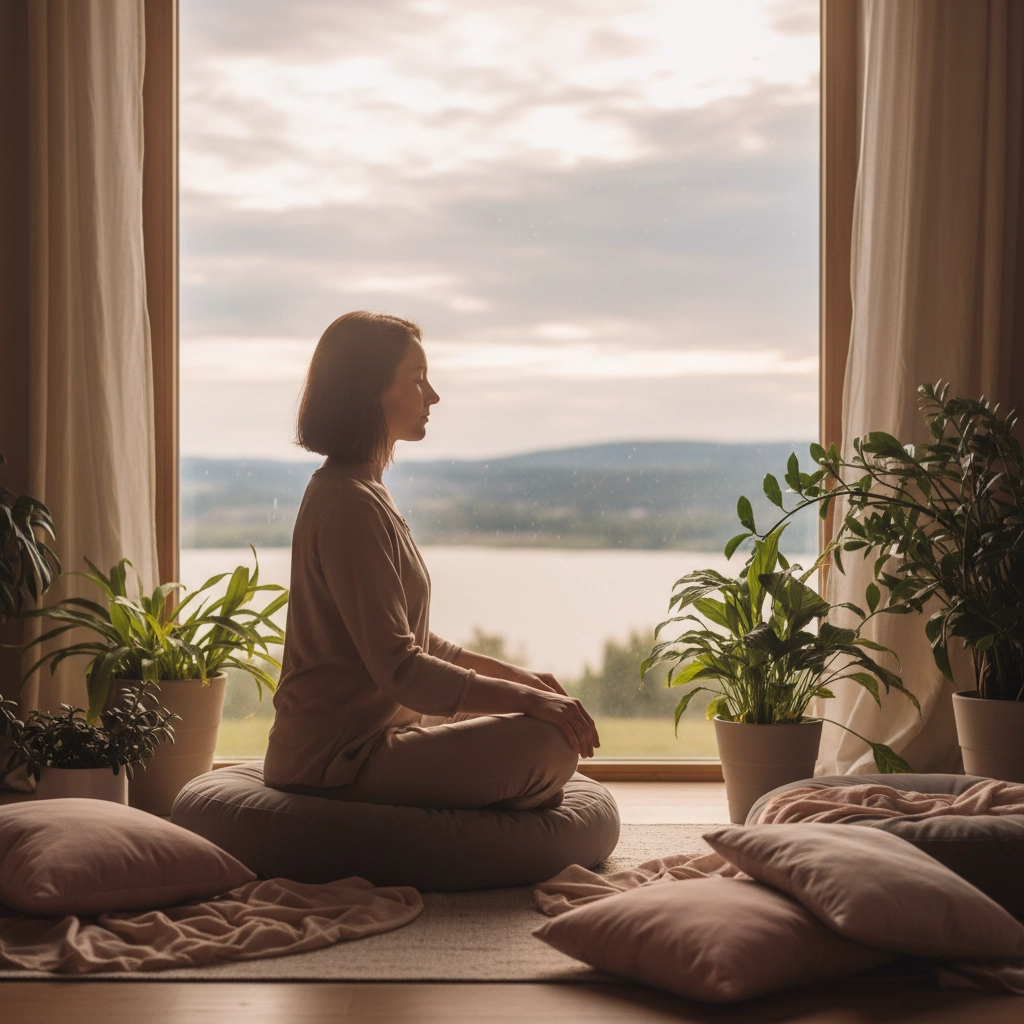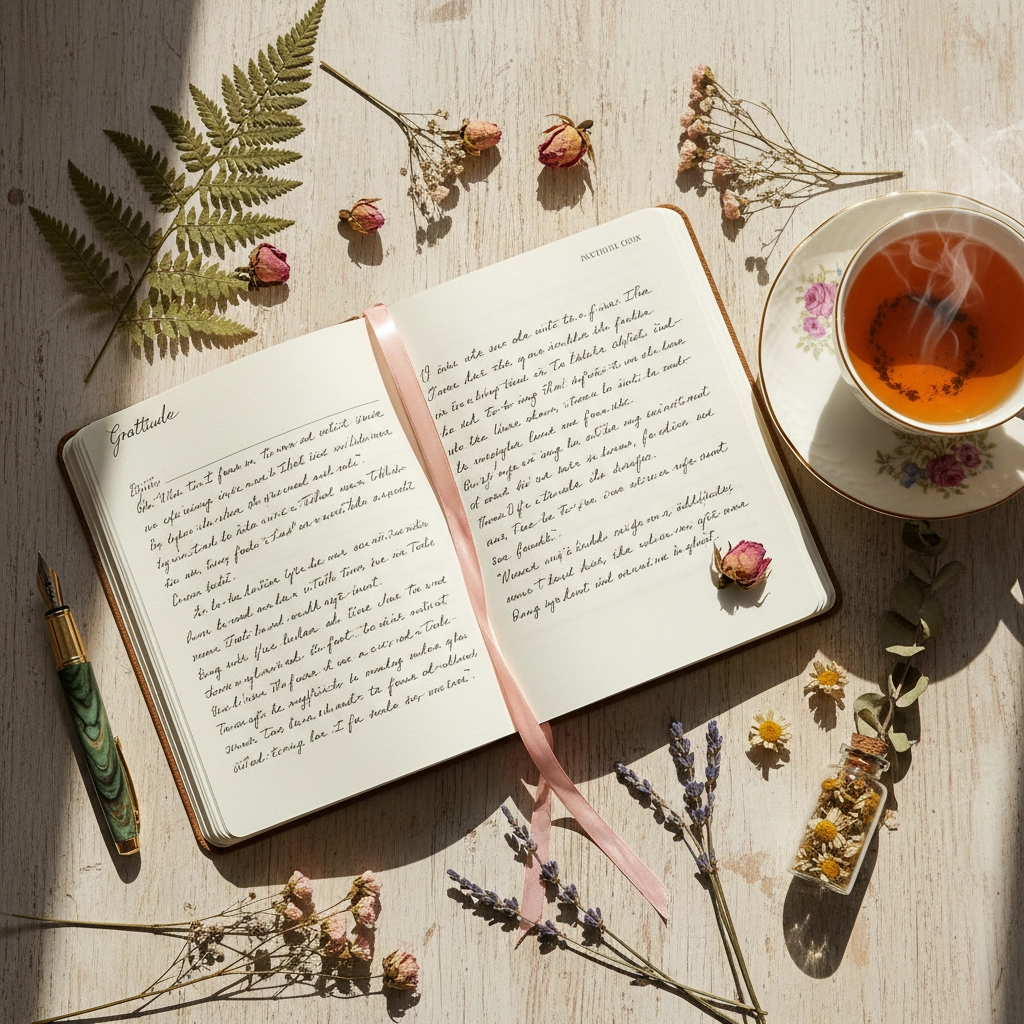In our fast-paced world filled with endless notifications, packed schedules, and constant pressure to achieve more, we often overlook life's most precious treasures hiding in plain sight. The beauty of simplicity lies not in grand gestures or extraordinary events, but in the quiet moments that weave through our daily lives like golden threads in an ordinary tapestry.
Gratitude for everyday moments transforms how we experience the world. When we pause to appreciate the simple things: the warmth of morning sunlight streaming through our windows, the gentle rhythm of rain against the roof, or the comforting ritual of brewing our favorite tea: we discover that life's richest experiences often reside in the spaces between our bigger ambitions.
Discovering Magic in the Mundane
Every single day offers countless opportunities for gratitude if we train ourselves to notice them. The problem isn't that these moments don't exist; it's that we've become so focused on what's next that we miss what's happening right now.
Consider the last time you truly savored your morning routine. Maybe it was the first sip of coffee that warmed you from the inside out, or perhaps the few minutes of quiet before the rest of the household awakened. These aren't just time-fillers between important events: they're the building blocks of a meaningful life.
Mindfulness plays a crucial role in recognizing these everyday gifts. When we practice being fully present, we begin to notice details that previously escaped our attention. The way afternoon light dances across our kitchen counter. The sound of children laughing in the distance. The satisfaction of completing a simple task with care and attention.

These ordinary experiences ground us in the present moment and remind us that life is measured not solely by achievements, but by the countless in-between moments that create a rich, textured existence. The beauty of simplicity teaches us that we don't need to wait for special occasions to feel grateful: every moment holds potential for appreciation.
Practical Ways to Cultivate Daily Gratitude
Building a gratitude practice doesn't require dramatic life changes or expensive tools. The most effective approaches are often the simplest ones, woven seamlessly into routines we already have.
Start a Gratitude Journal
One of the most powerful ways to develop appreciation for everyday moments is keeping a gratitude journal. Each evening, write down three to five specific things you're thankful for from that day. Instead of generic entries like "my family," try focusing on particular moments: "the way my daughter laughed at her own joke during dinner" or "the stranger who held the elevator door for me this morning."
This practice trains your brain to actively search for positive experiences throughout the day. You'll find yourself noticing small acts of kindness, beautiful details in your environment, and moments of joy that you might have previously overlooked.
Practice Gratitude Walks
Transform your regular walks into mindfulness exercises by focusing on what you can appreciate around you. Notice the changing seasons reflected in the trees, the architectural details of buildings you pass daily, or the way different neighborhoods have their own unique character.
During these walks, pay attention to your senses. What do you hear, see, and smell? How does the air feel against your skin? These sensory experiences anchor you in the present moment and open your awareness to the simple beauty that surrounds you constantly.
Mindful Daily Rituals
Every routine activity holds potential for gratitude practice. When you're washing dishes, appreciate the warm water and the satisfaction of creating cleanliness. While folding laundry, notice the textures of different fabrics and feel grateful for having clean clothes to wear.

Even mundane tasks become opportunities for mindfulness when approached with intention. Instead of rushing through them to get to something "more important," allow these activities to become meditation in motion.
Finding Connection in Simple Exchanges
Gratitude for everyday moments extends far beyond personal well-being: it strengthens our connections with others and builds a sense of community. The small interactions that happen throughout our days create the foundation for meaningful relationships.
Think about the brief exchanges with people you encounter regularly: the cashier who always remembers your name, the neighbor who waves from their garden, or the coworker who asks about your weekend. These micro-connections might seem insignificant, but they're threads in the tapestry of human community.
When we approach these interactions with gratitude and presence, they become more meaningful for everyone involved. A genuine "thank you" or a moment of eye contact can transform a routine transaction into a small but authentic human connection.
Expressing Appreciation
Make it a practice to express gratitude directly to people who make your days easier or brighter. Thank the mail carrier who delivers packages with care. Acknowledge the barista who remembers your order. Write a note to a teacher, mentor, or friend who has positively influenced your life.
These expressions of gratitude create ripple effects. When we acknowledge others' contributions to our daily experiences, we not only make them feel valued but also train ourselves to notice how many people contribute to our well-being in small but important ways.
The Quiet Power of Pause
In our culture that celebrates busyness and productivity, taking time to pause and appreciate simple moments can feel almost revolutionary. Yet these quiet moments of reflection are where gratitude truly takes root.

Create small pockets of stillness in your day. Maybe it's the first few minutes after you wake up, before you check your phone or start your to-do list. Perhaps it's a moment of appreciation before you eat, acknowledging the hands that grew and prepared your food. Or it could be a few deep breaths before you enter your home, feeling grateful for having a safe place to rest.
These pauses don't require meditation experience or special equipment. They simply ask you to stop, breathe, and notice what's already good in this moment.
The Science Behind Simple Gratitude
Research consistently shows that regular gratitude practice improves mental health, strengthens relationships, and even enhances physical well-being. When we focus on everyday moments of appreciation, we literally rewire our brains to notice positive experiences more readily.
This isn't about forcing fake positivity or ignoring life's genuine challenges. Instead, it's about developing a more balanced perspective that acknowledges both difficulties and gifts. When we regularly practice noticing what's going well, we build resilience that helps us navigate tougher times with greater stability.
Studies indicate that people who maintain gratitude practices sleep better, experience less stress, and have stronger immune systems. They also tend to be more generous, empathetic, and connected to their communities.
Building Sustainable Appreciation
The key to lasting gratitude practice is consistency rather than intensity. Small, regular actions create more lasting change than grand gestures that are difficult to maintain.
Start with just one simple practice: maybe writing down three things you're grateful for each night, or taking a moment to appreciate your morning coffee. Once this becomes natural, you can gradually add other elements to your gratitude toolkit.

Remember that gratitude is both a practice and a perspective. Some days will feel easier than others, and that's completely normal. The goal isn't to feel constantly grateful for everything, but to develop a more appreciative awareness of the good things that are already present in your ordinary, beautiful life.
The beauty of simplicity reminds us that joy doesn't require complexity. Peace doesn't demand perfection. And gratitude doesn't need grand occasions to flourish. Sometimes the most profound appreciation comes from recognizing that this moment, exactly as it is, holds everything we need to feel thankful for the gift of being alive.
When we learn to find gratitude in everyday moments, we discover that simplicity isn't about having less: it's about appreciating more of what we already have. And in that appreciation, we find a richness that no amount of complexity could provide.




